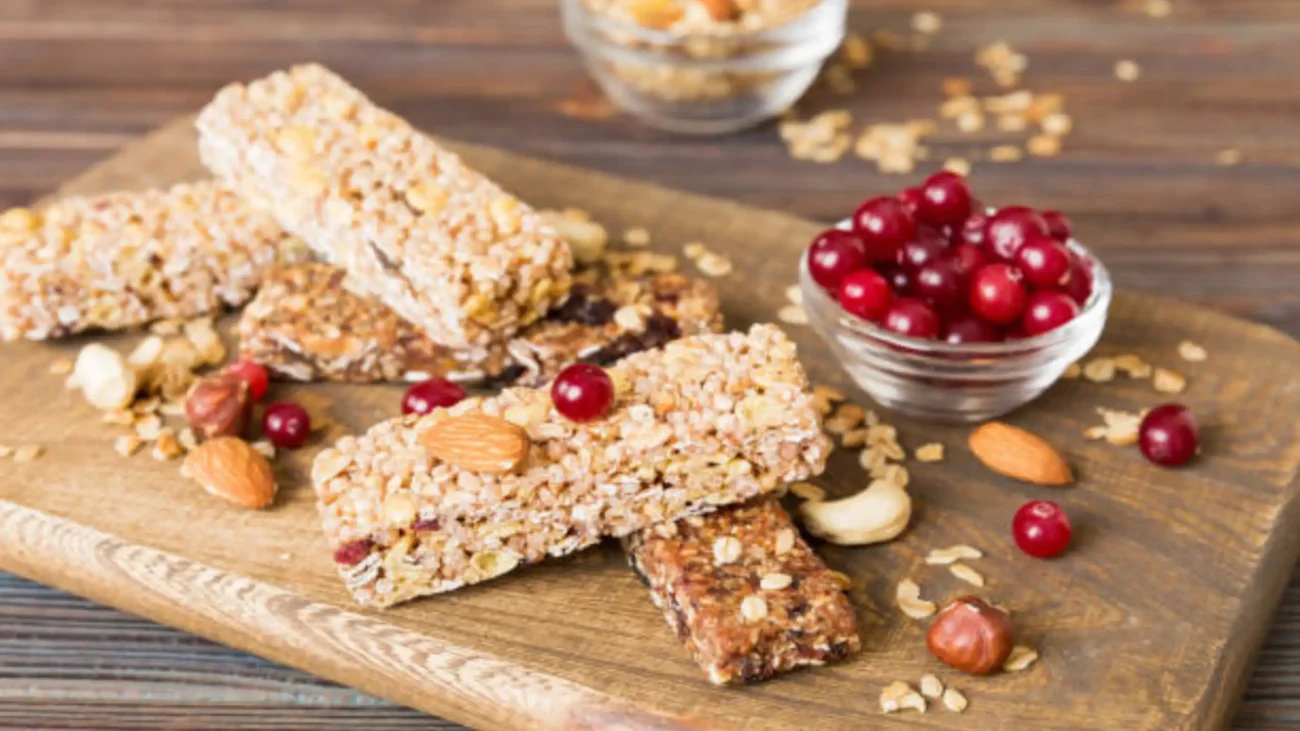In today’s fast-paced world, finding convenient and nutritious snacks can be a challenge, especially for those leading an active lifestyle. This is where protein bars come into play. Whether you are looking for a pre-workout boost, a post-workout recovery snack, or simply something to satisfy hunger between meals, protein bars are an ideal choice. However, with the vast array of options on the market, it can be overwhelming to choose the best one. In this article, we’ll break down the best protein bars, focusing on ingredients, nutritional value, taste, and more, to help you make an informed choice. solar gadget
In This Post
What to Look for in the Best Protein Bars?
When choosing a Best Protein Bars, it’s essential to consider several key factors that impact both nutrition and taste. Let’s explore what makes a protein bar stand out:
- Protein Content: The primary reason for choosing a protein bar is to increase Best Protein Bars intake. Look for bars that contain at least 10-20 grams of high-quality protein, such as whey, casein, soy, or pea protein. The protein should be the primary ingredient, ensuring that the bar supports muscle recovery and growth.
- Calorie Count: Depending on your dietary goals, you may want to monitor the calorie content of your protein bar. Bars that are higher in calories (200-400 kcal) are ideal for those looking to gain weight or consume a meal replacement, while lower-calorie bars (100-200 kcal) are suitable for snacking and weight management.
- Sugar and Artificial Sweeteners: Many Best Protein Bars contain added sugars or artificial sweeteners to improve taste. It’s important to select bars with minimal added sugars (less than 10 grams per serving) and avoid bars loaded with artificial sweeteners, which can cause digestive issues or energy crashes. solar gadget reviews
- Fiber Content: Fiber is crucial for maintaining digestive health and promoting satiety. A Best Protein Bars should contain at least 3-5 grams of fiber to help keep you full and support healthy digestion.
- Fat Content: While some fat in protein bars is healthy, particularly from sources like nuts, seeds, and coconut oil, it’s important to avoid bars high in saturated or trans fats. Aim for a bar with less than 10 grams of fat, focusing on healthy fats that provide sustained energy.
- Ingredients: The fewer processed ingredients, the better. Look for protein bars made from whole food ingredients like nuts, seeds, oats, and natural sweeteners like dates or honey. Avoid bars with long lists of synthetic additives, preservatives, or artificial flavors.

Top 10 Best Protein Bars for 2024
1. Quest Protein Bar
Quest has long been a favorite among fitness enthusiasts for its balance of high Best Protein Bars, low carbohydrates, and great taste. Each bar packs around 20 grams of protein and is sweetened with stevia and erythritol, keeping sugar content minimal. Quest bars are also high in fiber, making them a great option for keeping hunger at bay.
- Protein: 20 grams
- Calories: 190-210 per bar
- Sugar: 1 gram
- Fiber: 14-16 grams
2. RXBAR
RXBAR is known for its simplicity and transparency in ingredients. Each bar contains a short list of whole food ingredients such as egg whites, dates, and nuts. These bars offer around 12 grams of Best Protein Bars, making them a good snack option for those who prefer clean, simple nutrition without additives or artificial sweeteners. blog
- Protein: 12 grams
- Calories: 200-210 per bar
- Sugar: 13 grams (from natural sources)
- Fiber: 4-5 grams
3. Orgain Organic Protein Bar
For those who prefer a plant-based Best Protein Bars, Orgain offers a delicious and nutritious option. With a blend of brown rice and pea protein, each bar contains around 10 grams of protein. It’s also certified organic, free from gluten, soy, and dairy, making it an excellent choice for individuals with dietary restrictions.
- Protein: 10 grams
- Calories: 140-150 per bar
- Sugar: 5-6 grams
- Fiber: 6 grams
4. Clif Builder’s Protein Bar
Clif Builder’s Protein Bars are designed to provide a higher amount of Best Protein Bars serving, making them ideal for post-workout recovery. With 20 grams of soy protein and a robust flavor profile, these bars are satisfying and nutritious. However, they do contain more sugar than other options, so moderation is key.
- Protein: 20 grams
- Calories: 270 per bar
- Sugar: 17 grams
- Fiber: 4 grams
5. Kind Protein Bars
Kind Protein Bars are made from whole food ingredients like nuts and seeds, and they offer a decent protein punch without compromising on taste. With around 12 grams of protein per bar, these snacks are perfect for a quick bite that provides both protein and healthy fats. solar guides
- Protein: 12 grams
- Calories: 250 per bar
- Sugar: 8 grams
- Fiber: 5 grams

6. Pure Protein Bar
For those looking for a low-sugar, high-protein option, Pure Best Protein Bars are an excellent choice. Each bar contains 20 grams of protein while keeping the sugar content at a minimum, making them suitable for individuals following a low-carb diet. They also come in a variety of flavors, ensuring there’s something for everyone.
- Protein: 20 grams
- Calories: 200 per bar
- Sugar: 2 grams
- Fiber: 2-4 grams
7. No Cow Protein Bar
Another great option for vegans, the No Cow Protein Bar, is made with pea and rice protein, delivering a whopping 21 grams of protein with only 1 gram of sugar. It’s perfect for those avoiding dairy but still wanting a high-protein, low-sugar snack. travelers
- Protein: 21 grams
- Calories: 190-210 per bar
- Sugar: 1 gram
- Fiber: 14-16 grams
8. Lärabar Protein Bar
Lärabar Protein Bars are an all-natural option, made primarily from fruits, nuts, and spices. Each bar provides around 11 grams of protein, mostly derived from nuts and seeds, making them a good choice for those seeking a minimally processed, plant-based protein source.
- Protein: 11 grams
- Calories: 200-220 per bar
- Sugar: 15 grams (from natural sources)
- Fiber: 3-4 grams
9. Think! Protein Bars
Think! Protein Bars offer a strong protein content of 20 grams per bar with minimal sugar. These bars are gluten-free, making them suitable for individuals with gluten sensitivities. They also come in a wide range of flavors, allowing for variety while keeping sugar intake low.
- Protein: 20 grams
- Calories: 230 per bar
- Sugar: 0 grams
- Fiber: 1-3 grams
10. Built Bar
Built Bars are known for their unique texture, which is more similar to a marshmallow or nougat than traditional protein bars. They offer 17 grams of protein per bar while keeping sugar content low, making them a favorite for those looking for a satisfying yet nutritious snack.
- Protein: 17 grams
- Calories: 130-180 per bar
- Sugar: 4 grams
- Fiber: 6 grams

Conclusion
Choosing the best protein bar depends on your individual nutritional needs and preferences. Whether you are looking for a high-protein snack to fuel your workouts or a low-calorie option to manage your weight, there’s a protein bar for you. It’s important to prioritize protein content, low sugar levels, and whole food ingredients when selecting the best bar for your needs.
Frequently Asked Questions (FAQs) about Best Protein Bars:
1. What are protein bars?
Protein bars are snack bars that are designed to provide a convenient source of protein. They are commonly consumed by people looking to increase their protein intake for muscle growth, recovery, or as part of a balanced diet.
2. Are protein bars good for weight loss?
Yes, Best Protein Bars can be helpful for weight loss when chosen carefully. Look for bars that are low in sugar, high in fiber, and moderate in calories. The protein and fiber can help you feel full, reducing overall calorie intake throughout the day.
3. When should I eat a protein bar?
You can eat protein bars at various times, depending on your goals. They are often consumed:
- Pre-workout: For an energy boost.
- Post-workout: To aid muscle recovery.
- As a snack: Between meals to curb hunger.
- As a meal replacement: When you need a quick, balanced meal on the go.
4. Are all protein bars healthy?
Not all protein bars are created equal. Some bars contain high levels of sugar, unhealthy fats, or artificial ingredients, which can negate the health benefits of the protein content. Always check the label for nutritional information and opt for bars with whole food ingredients and minimal added sugars.
5. How much protein should a good protein bar have?
A good protein bar typically contains 10-20 grams of protein. For post-workout recovery or muscle building, aim for bars with 15-20 grams of protein.
6. Can I replace a meal with a protein bar?
Protein bars can be used as a meal replacement, especially if you’re on the go. However, it’s essential to ensure that the bar contains a balance of protein, carbohydrates, healthy fats, and fiber to provide the necessary nutrition of a complete meal.
7. Are protein bars suitable for vegetarians or vegans?
Yes, many protein bars are suitable for vegetarians, and some are vegan-friendly. Plant-based protein bars often use pea protein, brown rice protein, or other vegan protein sources. Always check the label to ensure it fits your dietary needs.
8. Can I eat protein bars every day?
While protein bars can be a convenient option, it’s best not to rely on them for your daily protein intake. Whole foods like lean meats, legumes, dairy, and vegetables should be your primary protein sources. However, a protein bar can be part of a balanced diet if consumed in moderation.
9. Are protein bars good for building muscle?
Yes, protein bars with high-quality protein sources (like whey, casein, or soy) are great for muscle building, especially when consumed after a workout. They help repair muscle tissue and promote growth.
10. Are there protein bars with no added sugar?
Yes, many brands now offer protein bars with no added sugar or that use natural sweeteners like stevia, monk fruit, or erythritol. These options are great for people looking to reduce their sugar intake while still enjoying a tasty snack.
11. How do protein bars differ from energy bars?
Protein bars focus primarily on providing protein, which supports muscle repair and growth, while energy bars often contain more carbohydrates to provide a quick energy boost, especially during endurance activities like running or cycling.
12. Are protein bars safe for kids?
Protein bars can be safe for kids, but it’s essential to choose bars with natural ingredients and low sugar content. Since children typically don’t need as much protein as adults, it’s crucial not to overdo it.
